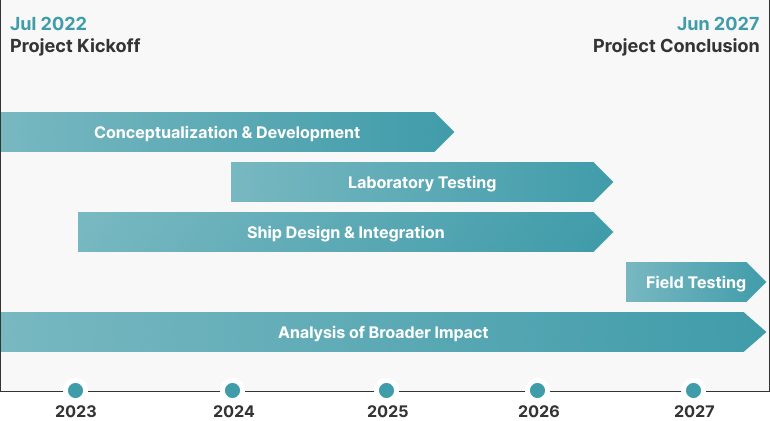The maritime sector is responsible for 90% of global trade. However, it also contributes to 2.5% of global greenhouse gas (GHG) emissions, and 13% of emissions from the EU transportation sector. The International Maritime Organization (IMO) has mandated a 50% reduction in GHG emissions from shipping by 2050 compared to 2008 levels. Meanwhile, the European Commission (EC) “Fit for 55” plan is more ambitious, targeting a 55% reduction in GHG by 2030 and 90% by 2050 compared to 1990 levels. To achieve these goals, the maritime industry needs to adopt a range of approaches, including high-efficiency energy conversion technologies, low carbon renewable fuels, and energy-saving solutions including onboard electrification.
The HELENUS project will develop and demonstrate a 500 kW solid oxide fuel cell (SOFC) in an MSC World Europa class ocean cruise vessel. The SOFC will be fully integrated into the ship’s design, producing both electricity and high-grade heat in combined heat and power mode. The project aims to achieve a Technology Readiness Level (TRL) of 7 by its end, with plans for extended field testing to reach TRL8 immediately following the project. If successful, this technology could be scaled up to as much as 20 MW, leading to over 23% total fuel savings compared to state-of-the-art energy systems with only internal combustion engines (ICEs). Furthermore, the project will demonstrate scalability of the SOFC technology to 10 MW and beyond, with further potential applications in dredging and offshore vessels. The fuel-flexibility of the SOFC system with low carbon maritime fuels will also be demonstrated, enabling robustness of the solution to future energy transitions.
The HELENUS consortium brings together diverse stakeholders across the value chain, from technology development to field implementation, to drive innovation and commercialization. The project will create a roadmap to a decarbonized future, fostering innovation and significantly boosting the competitiveness of the EU maritime industry.
Expected Impacts
- Commercialize multi-megawatt SOFC products for maritime use, including newbuild ships.
- Expand the use of SOFC technology in other forms of waterborne transport, including inland and deep-sea shipping.
- Accelerate the transition of the maritime sector towards renewable and carbon-neutral fuels, facilitating decarbonization.
- Develop a strong technological foundation for Classification Societies to create and evaluate class rules for integrating SOFC systems on large ships.
- Create a strong technological foundation for policymakers, regulators, and classification societies to enact appropriate regulations to encourage clean energy system adoption.
- Ensure the European maritime industry’s continued competitiveness by promoting the development and adoption of clean propulsion technology.
- Generate a demand for new skilled jobs to operate SOFC systems on ships and in ports.

